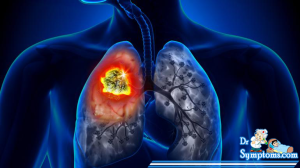BRONCHIAL CARCINOMA
Lung cancer or bronchogenic carcinoma is a malignant tumor that originates in the cells of the lung tissue.Lung cancer is mostly produced from the cells of the lower respiratory tract (bronchi). Therefore, it is also referred to as Bronchogenicl cancer. These are – in addition to breast cancer, colon cancer and prostate cancer – one of the most common cancers worldwide. Unfortunately, the number of cases is still on the rise, especially among women.

GROUPS OF LUNG CANCER
There are different types of lung cancer, which differ in their aggressiveness and their history, and therefore must be treated differently.
The most important for therapy and disease progression is the distinction of non-small cell lung cancer and small cell. Sufferers should identify at what type of cancer they suffer , if they want to learn about their disease and treatment options.
Non-small cell lung cancer
Non-small cell lung cancer is much more common form of lung cancer. In about 85 out of 100 cases of lung cancer is non-small cell lung cancer. Subtypes of NSCLC are:
• Squamous, which starts from the top layer of cells of the mucous membrane in the bronchi;
• The adenocarcinoma, which arises from glandular cells of the respiratory tract;
• The large-cell lung carcinoma, whose origin is still unclear.
Small cell lung cancer
Small cell lung cancer is much less common than non-small cell lung with about 15 out of 100 lung cancer cases. It often grows quickly and spreads early via the lungs to other organs of body.
To what kind of tumor is? In each individual case can be determined only through a microscopic examination of the cancerous tissue.
SYMPTOMS OF LUNG CANCER
Lung cancer causes in the early stages rarely produce symptoms. Signs of illness (symptoms) often occur only when the disease is already advanced. Smaller tumors are therefore often discovered by chance, for example when the lungs are X-rayed for other reasons. In addition, the symptoms are usually not unique to lung cancer, but can also indicate other diseases.
For more and complete information please click Symptoms of Lung cancer.
Causes Of Lung Cancer
Smoking is one of the major cause of lung cancer. But some other environmental factors and carcinogens are also responsible for causing lung cancer. Lung cancer does not arise suddenly, but in a long-term process that takes place in many steps and under the influence of a number of factors.
For more information about causes click CAUSES OF LUNG CANCER
Treatments and Diagnosis of Lung Cancer
Treatment depends on the type and spread of the tumor. As far as possible an attempt is made to achieve a cure. Depending on the type of cancer, stage and condition of the patient surgery, chemotherapy, radiation therapy or a combination of these are used.
For more information please click Treatments and Diagnosis Of Lung Cancer
Precautions Or Preventing Measures
The following risk factors should be avoided:
• Smoking and passive smoking
• Asbestos from older buildings or workplace
• The noble gas radon
• Radiation exposure from medical examinations
• Diesel soot and other air pollutants
• A healthy lifestyle can also have a positive effect on the risk of lung cancer:
• Diet that is rich in fruits, fresh vegetables and tomatoes seem to reduce the risk of developing lung cancer.
• Being physically active to reduces the risk
• Medications and dietary supplements for prevention are not recommended outside of clinical trials. Some substances, such as beta-carotenoids (a precursor of vitamin A) are suspected, especially in smokers to increase the risk of lung cancer even.
NOTE
When in doubt, you should always consult a doctor for such complaints. Earlier the cancer is detected, greater the chance of cure.
For more information about cancer:
